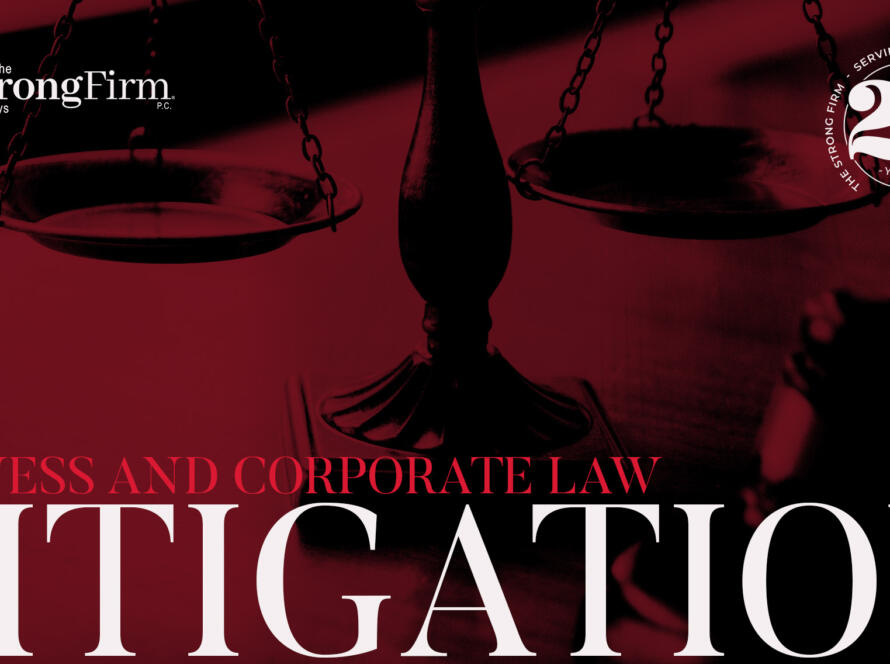“5 Questions Every Texas Business Owner Should Ask Before Signing Any Business Contract”
In my three decades of practicing business law in The Woodlands, Texas, I’ve seen countless business owners rush into agreements without first asking some basic questions. Business requires quick reaction and successful business owners are the ones that can act quickly and definitively. But what may start as an exciting opportunity can quickly become a costly mistake when proper analysis isn’t at the forefront of contracting. Many examples of helping clients navigate poorly written business contracts ending in costly litigation for clients have taught me that simply-worded but well thought out arrangements make for a successful contract. This approach has shaped how I advise business owners today about the basic but critical questions they should ask before putting pen to paper.
What exactly am I agreeing to do, and what exactly is expected of each of us now and in the future?
This sounds obvious and simple, but I am often surprised how many very important contracts contain vague language about deliverables, timelines, and respective responsibilities. I always tell clients to read every contract as if they were explaining the relationship to an uninvolved third party. If you can’t clearly articulate the commitment to someone else, in the event of a dispute, a jury of your peers in a court room will not understand it and be able to support your position.
Vague or over complicated contract language creates disputes when parties have different interpretations of obligations. The clients that succeed long-term are those that insist on simply worded but specific, measurable contract terms that leave little room for misunderstanding. Clear expectations prevent conflicts and support better business relationships.
What happens if something goes wrong, and how are disputes resolved?
Every business relationship faces challenges whether self-imposed or resulting from unanticipated external sources (such as the economy or changes within a business). The question isn’t whether problems arise in business, but rather how they’ll be handled when they do. Focus on termination provisions and liability limitations and risk allocation, specific delivery terms, default provisions and how does this contact end. Then lastly ask where and how disputes are handled when they occur. Are we using alternative dispute resolutions or going straight to a court room? Focusing on and understanding these provisions before signing can save significant time and money later and help resolve disputes before they get out of hand.
Over the years, I’ve helped clients navigate contract disputes that could have been resolved quickly with better provisions about handling defaults and controversies. Mediation requirements, arbitration procedures, and jurisdiction selections all affect how and where disputes are handled and how much they cost to resolve.
Who takes what when this relationship is over?
The proprietary nature of products and services, customer relationships, and confidential information are valuable business assets that are often not thought about in the heat of a deal. Contracts should always clearly define who owns and retains what was delivered, created or shared during the business relationship. This is particularly important in partnerships, vendor agreements, and employment contracts.
Our business community includes innovative companies whose success depends on protecting what they have worked hard to create. Clear information access and control and intellectual property ownership provisions prevent disputes and ensure that businesses retain ongoing rights to their most valuable assets.
What are my exit options, and how can this contract relationship be terminated?
Business needs and relationships change in an ever-changing world, and what makes perfect sense today might not work tomorrow. Understanding how a contractual relationship ends is every bit as important as knowing how it begins. Focus on termination clauses, notice requirements, and any costs and penalties associated with early contract termination or modification.
I regularly am consulted to help clients evaluate termination provisions for an exit when business circumstances change. Contracts with reasonable termination options which properly compensate parties when a decision is made to move on provide flexibility that actually supports business growth and adaptation to market changes.
What could this cost me beyond the obvious payments and stated obligations?
The stated money to be paid and consideration to be delivered in a contract is always just the beginning. Consider potential costs from unanticipated delays, scope of work changes, or contract breaches. Consideration should be given to making sure you are compensated for the resources you’ll need to employ to fulfill your obligations under a contract. Unanticipated hidden costs often cause contracts to quickly become unmanageable and unprofitable.
When reviewing the deliverables under a contract, cost analysis should include direct payments, opportunity costs, resource allocation, and potential liability exposure. The businesses that model for total contract costs make much better decisions about entering agreements which support their strategic goals.
After 30 years of helping businesses throughout Texas and the country navigate contracts, I’ve learned that the businesses that ask the tough questions upfront are the ones that avoid expensive problems down the road. Working with businesses of all types in The Woodlands business community has taught me that successful entrepreneurs, whether a small business or Fortune 500 company, don’t just look at opportunities – they also examine potential pitfalls and exit plans with equal scrutiny.
The most successful contracts I’ve negotiated are those where each party clearly understands their obligations, rights, and exit options before signing. This clarity creates stronger business relationships and better outcomes for everyone involved.
This is general information only and should not be considered legal advice. Every business situation is unique, and contracts should always be reviewed by qualified legal counsel before signing.
Ready to protect your business with proper contract review? Contact The Strong Firm today to schedule a consultation and ensure your next agreement serves your business interests.


